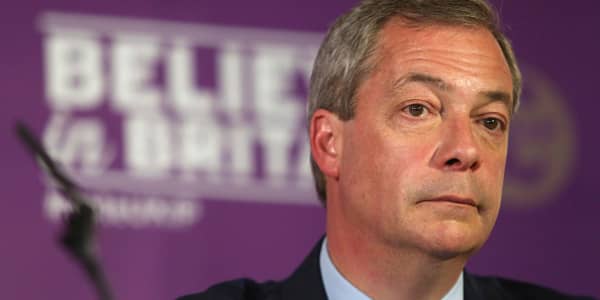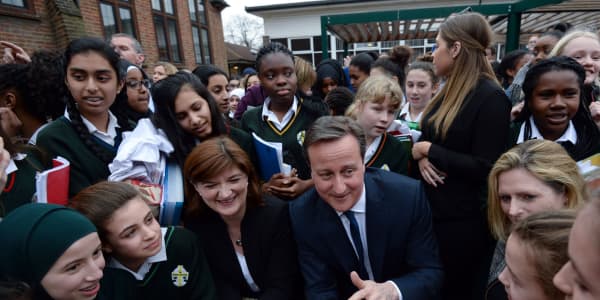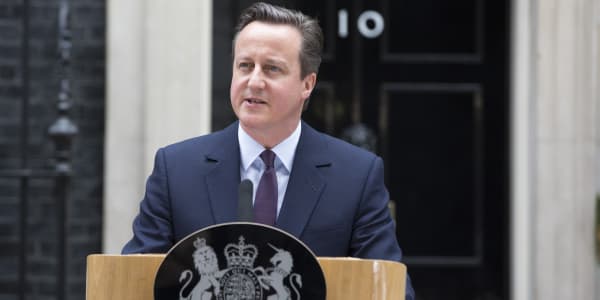


The U.K.'s two main political parties are stepping on each other's toes, as the most closely-fought election for decades continues to move markets.
Ed Miliband, the leader of the Labour Party, launched its manifesto Monday with a pledge that Labour's spending plans are "fully funded" and do not require any additional borrowing.
This marks an attempt to gain support on the traditional Conservative Party grounds of fiscal responsibility.
On the other hand, the Conservatives pledge to spend a further £8 billion ($ 11.6 billion) on the National Health Service (NHS)—which is generally seen as more of the Labour Party's territory.
The latest polls suggest that either Labour or the Conservative Party will need to partner with at least two smaller parties to form a government.
This could be easier for Labour, with the left-leaning Scottish National Party on board.
Read More'No good outcomes' for markets in UK election?
On Monday, Labour and Miliband detailed plans to "balance the books" if elected, saying that none of his proposals would require additional borrowing. Miliband said he would cut the deficit every year, while still keeping the country's free health service secure.
He said that he would save £7.5 billion ($11 billion) a year by tightening up on tax avoidance rules, which have been a hot topic in the U.K. over the last five years.
This follows on from a Labour promise earlier this year to investigate the culture and practices of Her Majesty's Revenue and Customs (HMRC)—the U.K. tax office.
"I think there is a widespread recognition that we need to change our approach to tax avoidance and tax evasion," Miliband said at press conference in Manchester when quizzed by CNBC.
"I just meet lots of small- and medium-sized businesses who say to me 'Look, I seem to be chased for every penny from HMRC, why do they do these deals with these big companies, and sometimes indeed individuals, and let them off the hook?"
Labour have also pledged to end zero-hour contracts - where employees are not guaranteed a certain number of hours a week - and hike the minimum wage. Both of these measures have raised concerns that the U.K. may become a more expensive place for multinationals to employ people.
Chuka Ummuna, Labour's shadow business secretary, told CNBC: "The biggest deterrent to investment is the possibility of a U.K. exit from the EU."
This would be more likely under a Conservative government, as the party has pledged to hold a referendum on EU membership.
Labour has also raised hackles among the wealthiest in the U.K. through promising to raise the top rate of income tax and also introduce an extra levy on its most expensive houses.
"We think it's reasonable to ask the top 1 percent of earners to make a little bit more contribution," Ummuna said.
Concern for markets?
Stock markets' main worry about the risk from a Labour-led government is that it would reduce the speed of deficit reduction.
If the Conservatives get in, the party's pledge for a referendum on the U.K.'s membership of the European Union and potential exit from the EU is the main concern.
The uncertainty has led markets on something of a bumpy ride, with sterling down over 6 percent against the dollar since the beginning of the year, although this has been exacerbated by a strengthening dollar.
Read MoreWhat's worrying the wealthy ahead of UK election
With the U.K.'s economy "reliant on consumer spending to continue driving economic expansion," as Alicia Higson, senior economist at the Centre for Economics and Business Research, pointed out in a research note, both of the dominant parties are caught in a bind between wanting to make the U.K. consumer feel good and continuing to reduce the deficit.





